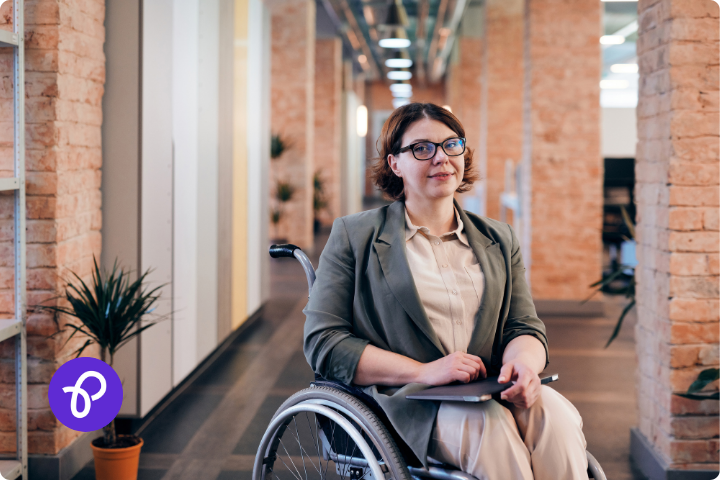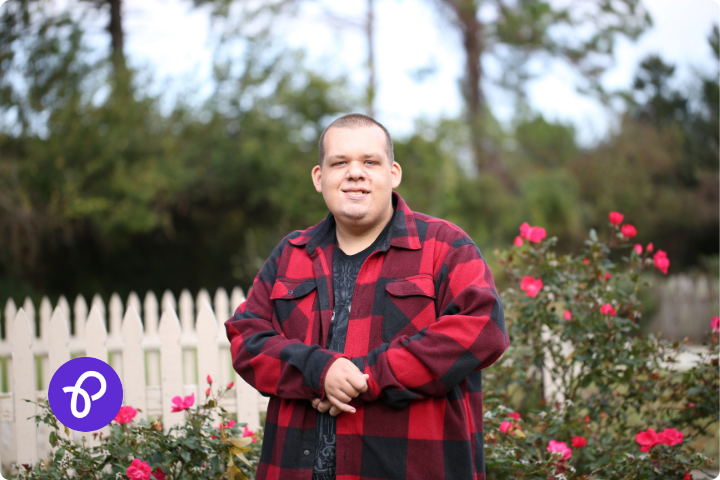All Articles
6 min read
Purpl Research: How Proposed PIP Cuts Could Devastate Disabled People in the UK

Written by
Sam Cleasby
Published on
April 9, 2025
The past few months have been a frightening time to be a disabled person in the UK with all the discussions of what changes were to be made by the Labour government when it came to Personal Independence Payments (PIP) and the support given to disabled people. This year, it was announced that there would be an overhaul of the PIP system, so that it went only to ‘those most in need’ but on closer scrutiny, OBR figures estimate that PIP will be reduced for 800,000 disabled people.
800,000 at Risk: The Human Cost of Limiting PIP Eligibility
If the limit is set to 4 points on one section of the PIP descriptors, it would mean that people who may have scored 20 points but in 2’s and 3’s would lose the benefit that they very much rely on to pay for the extra costs of life as a disabled person.
Scope call this cost the Disability Price Tag and put it at around £1010 a month more than a non-disabled person. So if people who are already incredibly vulnerable were to lose this extra money that pays for necessary therapies, travel to medical appointment and mobility aids, on top of a cost of living crisis, where does this leave the disabled community?
The Disability Price Tag and the Cost of Living
Just over one in two UK households (59%) reported increased living costs in March 2025. As the UK grapples with an ongoing cost-of-living crisis, disabled people face more challenges, and this may be worsened by the welfare cuts announced in March. With 56% of disabled people say increased food prices have affected them the most, we are facing a situation that puts the most vulnerable people in dire situations.
In our latest research with disabled people, we found that 89% of disabled people use their PIP for essentials like household bills, mobility aids, healthcare, travel and food and 70% of disabled people said the proposed PIP changes will leave them worse off.
We asked disabled people how they spent their Personal Independence Payments (PIP) and had 4254 votes, here are the results:

The full answers were: PA/Carer, Holidays, Toward rent or mortgage payments, Medical aids, medically required cleaning products or wound care, A cleaner or household help, Luxury items, toward dietary expenses, for example, special diets for your impairment, Food shopping, Travel expenses, for example taxis when you are not able to travel by public transport due to disability, Nights out and celebrations, Additional private medication, supplements or vitamins, Healthcare expenses, for example, physio, mobility aids, toward household bills or something else.
‘I Didn’t Ask for This’: Real Stories from PIP Claimants
Caroline Coleman, a Purpl member, said:
I am terminally ill (Stage 4 cancer), I’m not currently entitled to anything else because my husband works. I was medically retired at 47 and lost more than two-thirds of my income overnight. Unfortunately, we also didn’t lose two-thirds of our bills, so my PIP, the pittance it is, contributes to that, and pays for my cancer reflexology, petrol costs for all my hospital appointments.
Our sky-high heating bills are because I’m always cold to the touch now. I’d dearly love a cleaner because I struggle with a hoover now and getting up the stairs. I’m so angry I’m being portrayed as some kind of work-shy scrounger for claiming PIP. My family is just about getting by financially, there are no extras and treats are rare. We didn’t ask for this.
I paid my taxes for almost 30 years and when I needed help, they said my husband earned just over the household income threshold. PIP is a lifeline for me, I’m not expected to live another year so I don’t need the stress and worry this has caused. We are being treated as statistics and our lives are valued in negative monetary terms. This, and previous governments, picked the lowest hanging fruit instead of going after the billionaire tax dodgers, where they can make real savings!
Some have portrayed PIP and benefit claimants as lazy or scroungers, but Purpl’s research shows that most disabled people spend their PIP on essentials for living. 17% of disabled PIP claimants said their PIP goes towards household bills, 13% towards mobility aids, 12% towards healthcare expenses and 11% towards private medication.

‘Without PIP, I’ll Lose My Job’: How Cuts Undermine Work
Andy Tomo, a PIP claimant said:
At the moment I use it [PIP] to travel to work and for aids for me to be able to work, without it I wouldn’t be able to keep my job and I’ll be forced to go on full time benefits, so the governments argument of doing what they can to get people working will backfire with me if they reduce it or take it away. It also helps compensate against the loss of earnings so I can still pay my utility bills when I have to attend hospital and medical visits as I’m due to potentially have up to six more surgeries this year.
The Government has claimed that the cuts are to get people back into work, but many like Andy may end up in a more difficult position. The welfare cuts come at a critical time, with many dealing with the rising cost of living.
When we asked which aspect of the cost of living crisis has affected disabled people the most, our research found that 56% of disabled people have been most affected by increased food prices. Research from the ONS supports this – in the 12 months to February 2025, UK food inflation stood at 3.3% (CPIH), exceeding overall inflation for the first time since September 2024, indicating a faster rise in food prices.
Disabled and Freezing: How Energy Costs Are Causing Real Harm
Along with food prices, energy prices have also risen, and it was voted the second most important aspect of the increased cost of living crisis, according to 29% of disabled PIP claimants. Many disabled people need warm temperatures to prevent illness, and this can lead to sky-high energy bills.
One of our Purpl members who prefers to remain anonymous said:
I need the heating on all the time because I get hypothermic really easily and the cold is physically painful, but it’s leaving me no money for food. I can huddle under an electric blanket and that’s ok, but it’s freezing when you come out to get food, go to the loo. I end up dehydrating myself because it’s less painful than having to go to the loo in the cold.
The rising costs of living combined with the reduction in PIP claimants will impact disabled people and the most vulnerable in society. Some may be able to relieve some of the financial pressure by making use of discount sites like Purpl.

Discounts with Impact: What Makes Purpl Different
Georgina Colman, Founder of Purpl said:
It has been proven that it is more expensive to live as a disabled person, and it has been getting more difficult with inflation and the increased cost of living. I’ve already seen costs rise on my therapies that are critical to keeping my body as mobile as possible. I’m concerned that many people in the disabled community will no longer be able to afford their private therapies and will be looking to the NHS to provide these, which we know they will struggle to provide.
I started Purpl to help disabled people like myself with the costs of everyday life. We’ve got many discounts and offers on everyday brands; however, Purpl alone is not enough. We need good Government policies so disabled people can be supported and not have to struggle.
Why Disabled-Led Solutions Like Purpl Matter Now More Than Ever
Purpl are the UK’s first and fastest growing disability discount sites, aiming to offset the extra costs of life as a disabled person. But beyond discounts, Purpl is a disabled led business that wants to share information, guidance and support to help make positive changes for the disabled community.
Purpl has a whole range of benefits guides, community stories and more, and work with over 250 brands to create incredible and exclusive discounts for our members. We give back to charities and the long-term aim is to create a Purpl Foundation to give grants to disabled people and groups in the UK.
Our thriving private Facebook members group is filled with supportive people who share peer to peer support, information and fun, as well as being a key part of our research, polls and surveys. With thousands of verified disabled people in our group, we can create real, on the ground research and ensure that the voices of the disabled community are heard!
For more information, get in touch with [email protected]
About the Author

Sam Cleasby is a storyteller and is the marketing manager at Purpl, she creates our blogs, runs the Purpl facebook community and page and looks after people and charity connections. She is passionate about Purpl and saving the disabled community money as well as giving them information, guides and sharing how to make a difference in your life. Sam creates space for community members and disability activists to share their stories and allow their voices to be heard.
Sam lives with a stoma and chronic illness, she runs a blog and does talks and events all over the UK and Europe and she is a mother to three adult children, she lives by the sea with her husband, two dogs, one cat, one duck and six chickens. She’s a disabled artist and loves creativity, nature, textiles and jigsaws.

More Interesting Reads
Changing Lives Together: Purpl and MS UK Form Charity Partnership
“You Don’t Look Disabled!” Our Survey on Disability and Taboos
The ‘Get Britain Working’ White Paper & Disabled People
